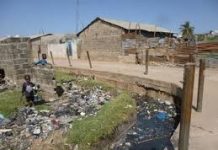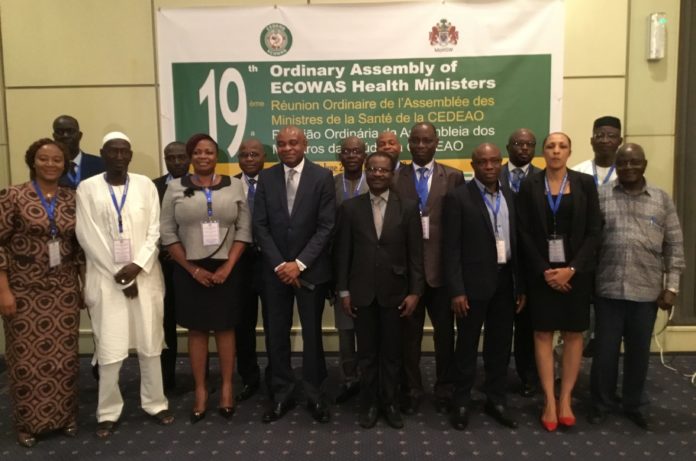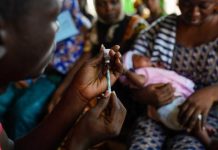By Kebba Jeffang
The annual report of the West African Health Organisation (WAHO) presented in Banjul has indicated that maternal death toll is higher than combining that of all other killer diseases in the region.
Mr Salifou Zouma, Director of Planning, Research and Health Information made this revelation in his presentation on June 5th that also ranked malaria and tuberculoses the deadliest in the region.
He disclosed that fourteen ECOWAS countries with the exception of Cape Verde, reported a total of 5,084 maternal deaths in health care settings.
“Although underestimated due to insufficient reporting, the number of maternal deaths is much higher than the total number of deaths caused by all epidemic-prone diseases in the region,” he said.
Malaria
He said malaria remains one of the major public health problems in the region.
“The latest available estimates show that malaria incidence is among at-risk populations in the ECOWAS region and among the highest in the world,” the finding shows.
Tuberculosis
As for tuberculosis, Zouma said it also remains a major public health problem in the region.
“The estimated prevalence of the disease varies from 46 per 100,000 inhabitants in Togo to 374 per 100,000 inhabitants in Guiné-Bissau in 2016, with ten (10) countries out of the 15 of the community having a level of incidence greater than 100 per 100, 000 inhabitants,” he said.
HIV/AIDS
The report also shows that the number of people living with HIV/AIDS (PLWHIV) was estimated at about 5,000,000. It indicated that the median HIV prevalence in the general population aged 15-49 years was 1.6% with variations across countries.
According to him as per the report: “Less than 1% in Burkina Faso, Cape Verde, Niger and Senegal, between 1% and 2% in Benin, The Gambia, Ghana, Guinea, Liberia, Mali and Sierra Leone and more than 2% in Côte d’Ivoire, Guinea – Bissau and Togo. Women accounted for 58% of adults and 50% of all PLWHIV.”
He said non-communicable diseases (NCDs) are currently the leading causes of death in the world.
“In the ECOWAS region, it on average 29.5% of deaths that were due to non-communicable diseases in 2015, that is about 1.1 million deaths,” he said.
In 2017, he said ECOWAS countries were grappled with recurring epidemics of cholera, meningitis, measles and Lassa fever. Outbreaks of emerging or re-emerging diseases such as Dengue were also recorded.
“Eight countries in the region (Benin, Côte d’Ivoire, Ghana, Guinea, Liberia, Niger, Nigeria and Sierra Leone) reported 4,460 cases of cholera including 116 deaths, representing a lethality rate of 2.6%,” he said.
Mr. Zouma added that, in 2017, all countries of the Community reported at least one case of meningitis, which is still one of the most rampant Epidemic-prone Diseases (MPE) in the region.
He stated: “Fourteen ECOWAS countries reported a total of 40,769 suspected or confirmed cases of measles, including 153 deaths. Nigeria, Guinea and Sierra Leone are the most affected countries, with nearly 80% of reported cases of the disease.”
He indicated that a cumulative number of 6414 suspected cases of yellow fever, including 51 deaths was recorded in thirteen (13) countries with the exception of Cape Verde and Guinea Bissau.
Lassa fever epidemic
He said lassa fever epidemics persist in four countries of the community, namely; Liberia, Nigeria and Sierra Leone since 2010 and Benin since 2016. He said these countries recorded cumulatively 889 cases including 118 deaths, a case-fatality rate of 13.3% in 2017.
Neonatal tetanus
“With the exception of Cape Verde and Guinea-Bissau, the thirteen other ECOWAS countries reported cases of neonatal tetanus which is a disease targeted for elimination. The number of cases and deaths related to the disease is on the rise, from 265 cases including 89 deaths in 2016 to 391 case with 104 deaths in 2017,” he disclosed.
He said the three ECOWAS countries that were affected by the dengue epidemic in 2017 are Burkina Faso, Côte d’Ivoire and Senegal.





















